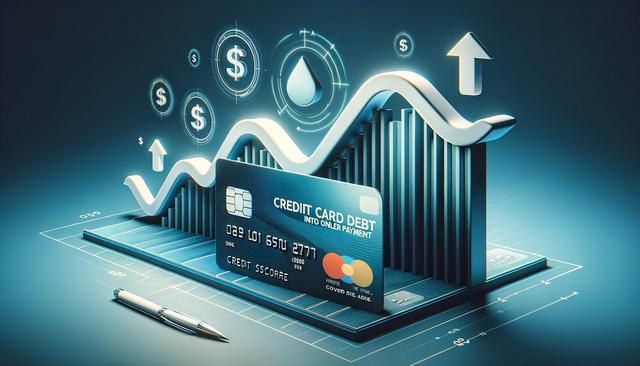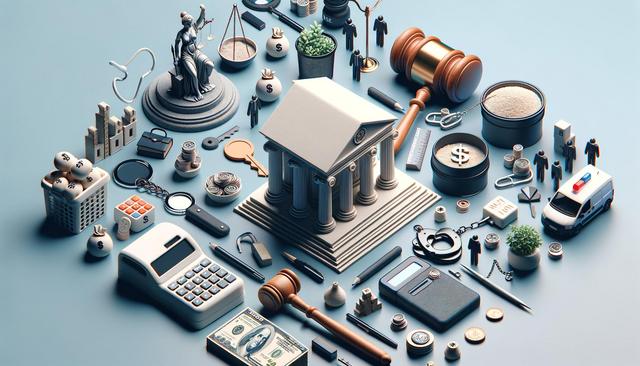Understanding Credit Card Debt Consolidation
Credit card debt consolidation is the process of combining multiple high-interest credit card balances into a single payment with a lower interest rate. This strategy can simplify your finances and reduce the total amount of interest you pay over time. The goal is to make your debt more manageable without negatively impacting your credit score, which can happen if not approached carefully.
There are several methods to consolidate credit card debt, such as balance transfer credit cards, personal loans, home equity loans, and debt management plans. Each option has its pros and cons, depending on your financial situation and credit history. For example, balance transfer cards may offer low introductory interest rates, but they often come with transfer fees and time limits. Personal loans provide fixed interest rates and repayment terms, making budgeting easier.
Before choosing a consolidation method, it’s important to evaluate your total debt, interest rates, and monthly payments. You’ll also want to assess your credit score, as it plays a major role in qualifying for favorable terms. Staying informed and comparing offers can help you make a decision that supports both your short-term relief and long-term financial health.
How Debt Consolidation Can Lower Monthly Payments
One of the main benefits of consolidating credit card debt is the potential to reduce your monthly payments. By replacing multiple high-interest debts with a single loan or credit account at a lower interest rate, you can decrease the amount you pay in finance charges each month. This can free up cash flow and make your budget more flexible.
Here’s how consolidation can help lower your monthly bills:
- Reduced interest rates mean less money goes toward interest and more toward principal.
- Fixed monthly payments make it easier to plan your budget.
- Longer repayment terms can lower your minimum monthly payment, though they may increase total interest paid over time.
However, it’s critical to use this savings wisely. Simply paying less each month without reducing spending or changing financial habits might lead to accumulating new debt. Use the extra funds to build an emergency savings fund or pay off your consolidated debt faster to save even more in the long run.
Maintaining a Healthy Credit Score During Consolidation
Many worry that consolidating debt will hurt their credit score, but when done strategically, it can actually improve your credit in the long term. Initially, you may see a slight dip due to a new credit inquiry or account, but consistent, on-time payments will help your score recover and grow.
To protect your credit score while consolidating debt, keep these tips in mind:
- Continue making all debt payments on time during the transition period.
- Avoid closing old credit card accounts, as this can reduce your credit history length and available credit.
- Keep your credit utilization below 30% to maintain a healthy debt-to-credit ratio.
- Limit new credit applications while you focus on repaying your current debt.
Credit scoring models also reward responsible credit behavior over time. By consolidating debt and sticking to a repayment plan, you demonstrate financial responsibility, which can enhance your creditworthiness in the eyes of lenders.
Choosing the Right Debt Consolidation Option
Not all debt consolidation strategies are created equal. Choosing the right one depends on your specific needs, credit profile, and financial goals. Here’s a breakdown of common options:
- Balance transfer cards: Suitable for those with good credit, offering low or 0% APR for a limited time.
- Personal loans: Offer fixed rates and terms, useful for those needing predictable monthly payments.
- Home equity loans or lines of credit: May provide lower rates but put your home at risk if you default.
- Debt management plans: Offered through nonprofit credit counseling agencies, these involve negotiating lower interest rates with creditors.
When selecting a method, consider fees, interest rates, loan terms, and potential risks. It may be helpful to speak with a financial advisor or credit counselor to explore your options. Avoid any solution that seems too good to be true or charges high upfront fees, as these may be signs of a debt relief scam.
Staying on Track After Consolidation
Successfully consolidating your debt is only the first step. Staying on track with your repayment and avoiding new debt are crucial to achieving long-term financial stability. After consolidation, it’s important to adopt habits that support your new financial goals.
Here are a few steps to help you stay on course:
- Create a realistic monthly budget that includes your consolidated payment.
- Set up automatic payments to avoid late fees and protect your credit score.
- Track your spending to identify and eliminate unnecessary expenses.
- Use any extra income, such as tax refunds or bonuses, to make extra payments and reduce your balance faster.
It’s also a good idea to periodically review your credit reports for accuracy and monitor your score. Celebrating small milestones, like paying off a certain percentage of your debt, can help maintain motivation. Most importantly, view consolidation as part of a larger plan to improve your financial well-being, not just a quick fix.
Conclusion: A Practical Path Toward Financial Freedom
Consolidating credit card debt into one lower payment offers a structured and manageable way to regain financial control without harming your credit score. By understanding your options, choosing the right method, and committing to responsible financial habits, you can reduce your monthly bills and work toward a debt-free future. Whether you’re seeking relief from high interest rates or a simpler way to manage your finances, consolidation can be a valuable tool when used wisely and with a long-term mindset.




Leave a Reply